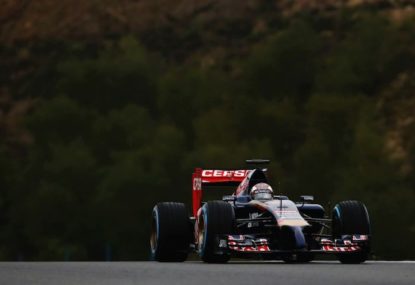Fernando Alonso's future is secure, now it's Lance Stroll's time to deliver for Aston Martin
It’s time that serious questions are asked of his Lance Stroll and his future in the team.

The final race of the famous 1976 Formula One season should’ve been abandoned because of rain. It went ahead, however, because of the massive television deal that had been arranged.
The teams, the drivers and the race organisers would’ve lost too much money had the race been called off. It was the just the beginning of television’s influence as a ruling factor in Formula 1.
In 2011, Formula One’s worldwide TV arrangement fetched the organisation some USD$488.9 million. It sells all around the world, year in, year out.
Unfortunately, 60 per cent of this worldwide audience comes from Europe. It’s considered by many to be the birthplace of motor racing, and makes up a large part of the season. So it makes sense for there to be a big fan-base for Formula One in Europe.
While this isn’t a bad thing for European viewers, it’s a situation the Formula One viewers of Asia and the Americas just have to live with. And up until 2008, they could.
But everything changed when the inaugural Singapore Grand Prix was to be held under lights. The night races are great as a novelty event. Singapore looks tremendous by night, and the twilight race in Abu Dhabi is very unique.
But moving the starting time of this week’s Bahrain Grand Prix to 6:00pm local time won’t add atmosphere to the circuit, or create a festive atmosphere locally. It’s just designed for Europeans to be able to have their regular Sunday afternoon relax on the couch in front of the Formula One.
While this is great news for them, Formula One fans in the Chinese or Japanese markets will be up until 1:00am waiting for the race result.
How can Formula One possibly consider it fair to be changing the event times to suit one specific market? If Formula One were serious about making the championship a global event, then they should allow each market its equal share of exposure.
We’ve recently seen the local start time of some of the Asian based races be slightly shifted, albeit less drastically than Bahrain.
Rather than the traditional 2:00pm start in most countries, Australia started at 5:00pm. Malaysia was at 4:00pm, just for the sake of making it that little bit more accessible for the Europeans waking up in the morning.
The problem with this is it can make the actual running of the event a little difficult, particularly if it rains. As we’ve seen again this year, bad weather can make the unlit circuits very dark. The sun is very low in the sky by the time the Melbourne race finishes, while the monsoonal rain in Malaysia is accompanied by very dark clouds.
This is dangerous for the drivers, and nothing should come at the expense of driver safety.
If Formula One are willing to hold a race in Asia, they have to make sure that the race can actually be safely run. It robs the spectators in that market of the excitement of the live event.
Unfortunately, there is no shift in policy in sight. If the current approach to scheduling continues, it’s inevitable that the Australian, Malaysian, Chinese, Japanese and other Grands Prix in the Eastern Hemisphere are going to be held at night because of European television commitments. This is only going to send the cost of holding the events up.
On top of the already outlandish payments Grand Prix corporations have to pay just for the right to host their race, circuits will not only have to pay to get appropriate lights installed, but then further costs to operate and maintain them.
If Formula One are going to force corporations to hold their races at night, then shouldn’t they be required to equip the facilities to do so?
Night races could also affect attendance numbers at the races. Would Albert Park have the same atmosphere if the race was held at night? The Japanese fans are some of the most passionate and knowledgeable in the world, but how would they react if Suzuka became a night event?
If the European supporter base was around the 80 per cent mark, it might make a little more sense to favour the European base. But as it’s a little more evenly spread than that, it doesn’t make a lot of sense to alienate the rest of the markets if you’re going to the effort of making Formula One a global sporting circus.
It is called the Formula One World Championship after all.